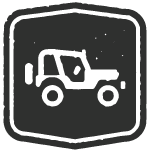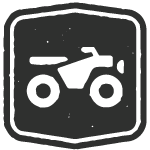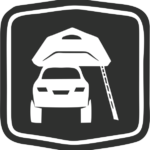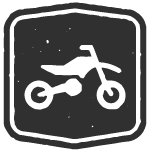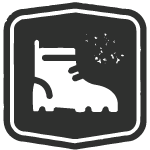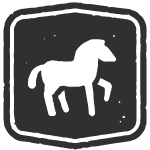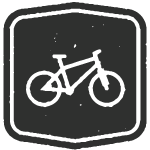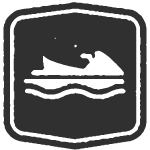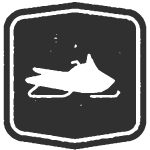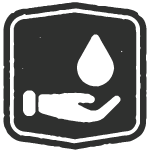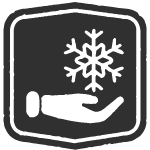Phone: (801) 627-0077 Toll Free: (800) 966-9900

Hunting


TRAVEL RESPONSIBLY
Travel responsibly on designated roads, trails and areas.
- Practice minimum-impact travel techniques for your mode of transportation.
- Stay on the trail even if it is rough and muddy.
- Walking on the track edge and cutting switchbacks increase damage, causing erosion and visual scarring.
- Walk single file to avoid widening the trail.
- When traveling on foot in open country where there are no trails, spread out to disperse impacts and avoid creating new trails.
- Comply with all signs and respect barriers.
- Hunting solo can leave you vulnerable. Leave a hunting plan with friends or family including where you are hunting and what time you expect to be home.
- Don’t mix hunting with alcohol or drugs.
RESPECT THE RIGHTS OF OTHERS
Respect the rights of others, including private property owners, all recreational trail users, campers and others so they can enjoy their recreational activities undisturbed.
- Be considerate of others on the road or trail.
- Be a sportsman and practice ethical hunting.
- Never take a shot unless you see the animal clearly, you can identify it and you know what lies between you, the target, and beyond.
- Don’t shoot across roads, trails, waterways or into caves.
- Property such as signs, kiosks and buildings are not targets.
- Don’t leave animal remains in wetland or riparian areas, on campgrounds, roads or trails.
- Leave gates as you find them.
- If crossing private property, be sure to ask permission from the landowner(s).
- Always yield to horses. Speak to the rider and horse in a friendly, relaxed tone to determine the best way to proceed.
EDUCATE YOURSELF
Educate yourself prior to a trip by obtaining travel maps and regulations from public agencies, planning for your trip, taking recreation skills classes and knowing how to operate your equipment safely.
- Know the hunter education requirements for your area.
- Required or not, take a hunter education course.
- Obtain a map (motor vehicle use map where appropriate) of your destination and determine which areas are open to hunting for your desired game and your type of travel.
- Know the season dates and regulations for the type of hunting you plan to do.
- Make a realistic plan and stick to it. Always tell someone of your travel plans.
- Contact the land manager for area restrictions, closures and permit requirements.
- Check the weather forecast before you go. Prepare for the unexpected by packing a small backpack full of emergency items.
- Carry a compass or Global Positioning System (GPS) and know how to use them.
- Dress in layers and carry a jacket. Know your state’s requirements regarding when to wear Hunter Orange.
- Know your limitations. Watch your time and your energy.
AVOID SENSITIVE AREAS
Avoid sensitive areas such as meadows, lakeshores, wetlands and streams. Stay on designated routes.
- Hunting often requires cross country travel through sensitive habitats. Travel only by foot and choose your route carefully. Grass, rocks, gravel and dirt are the best surfaces to walk on. Avoid water-logged soils and slopes/stream banks susceptible to erosion.
- Other sensitive habitats to avoid include cryptobiotic soils of the desert, tundra and seasonal nesting or breeding areas.
- Do not disturb historical, archeological or paleontological sites.
- It is damaging and unlawful to use a permanent tree stand, blinds or platforms as well as to place spikes, nails, wires or other metal objects into a tree to act as steps or to hold a tree stand on public lands.
- Minimize damaging or removing trees or other plants when putting up hunting structures or enlarging sight lines.
- Avoid “spooking” livestock and wildlife you encounter.
- Motorized and mechanized vehicles are not allowed in designated Wilderness Areas.
DO YOUR PART
Do your part by modeling appropriate behavior, leaving the area better than you found it, properly disposing of waste, minimizing the use of fire, avoiding the spread of invasive species and restoring degraded areas.
- Carry a trash bag on your vehicle and pick up litter left by others.
- Pack out nails, ropes, wire, rifle/shotgun shells and other trash.
- Dismantle meat poles and other structures used while hunting.
- Remove flagging and biodegradable tape used for route finding.
- Provide information to wildlife managers to help manage game and determine wildlife inventories.
- Report any poaching incidents.
- Practice minimum impact camping by using established sites and camping 200 feet from water resources and trails.
- Observe proper sanitary waste disposal or pack your waste out.
- Before and after a hunt, wash your gear and support vehicle to reduce the spread of invasive species.
- Build a trail community. Get to know other types of recreationists that share your favorite trail.




